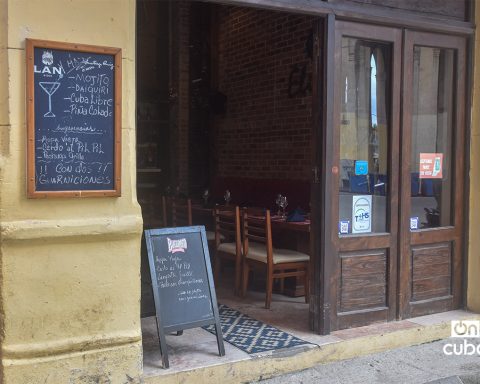MIAMI, United States. – The political prisoner Yosvany Rosell García Caso was transferred to the Holguín Clinical Surgical Hospital after fainting in the Cuba Sí prison, also known as El Yayal, at dawn last Monday, he said. Mailín Rodríguez Sánchez, his wife, to Radio Marti and Cuban newspaper.
Rodriguez Sanchez He specified that his partner’s health was “very fragile” and that he had lost a lot of weight, up to 55 kilos.
Garcia Caso, 34, a protester in the protests of July 11, 2021 in Holguín and sentenced to 15 years in prison for the alleged crime of sedition, is in critical condition after 20 days on hunger strike.
“He is very weak and has lost a lot of weight, he is at 55 kilos, according to what they tell me. He stopped drinking water on May 29, that’s why he fainted,” Rodríguez Sánchez told Marti News.
According to the woman, despite her husband’s critical condition, the prison authorities have not allowed the entry of medicines for his hypertension conditions. Even during her protest, the political prisoner was placed in isolation, which has aggravated her situation.
“There they have him in a cubicle that is a prisoner with bars guarded by four guards,” Rodríguez Sánchez told Radio Marti. “I ask for justice and freedom for Yosvany Rosell García Caso, who is in danger of his life,” he added in his conversation with Cuban newspaper.
FANTU holds the Cuban regime responsible for any damage to striker Yosvany Rosell García
Since the start of the protests in July 2021, García Caso has been demanding the review of his sentence, and has denounced a shady judicial process on multiple occasions. Likewise, he has declared that he prefers death rather than living unjustly deprived of his freedom.
“He can’t take being in jail anymore, innocent, without having committed a crime, he can’t take being away from his children anymore,” said his wife.
Since the trials of the 11J protesters began, several human rights activists and NGOs have denounced a lack of guarantees, fabrication of evidence and excessive sentences in these processes. The sedition charge has been particularly controversial. Organizations such as Justice 11J and Human Rights Watch have criticized its use, alleging that it has political connotations and is a violation of Human Rights.
















